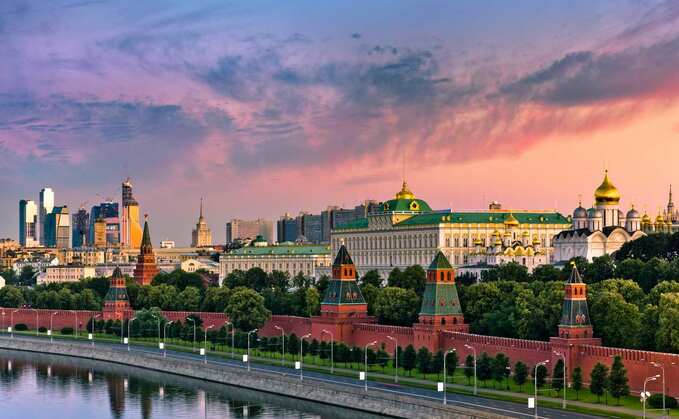
As Russia's unprovoked attack on Ukraine sparks chaos on the global energy markets the need for a clean tech revolution has never been clearer
It almost feels crass to talk about energy and technology on such an unbelievably bleak and depressing day. But these arguably prosaic issues are right at the heart of the shameful and violent catastrophe being afflicted upon Ukraine by Vladimir Putin's imperialist brutality.
It is Europe's reliance on Russian energy and London's accommodation of the money generated by Europe's reliance on Russia's energy that has shaped the appeasement that has brought us to this point. It is virtually impossible to imagine that Putin's military and its allies would have been able to annex sovereign regions, shoot down passenger aircraft, and poison dissidents on foreign soil with so little international push back were it not for Russia's influential position within the fossil fuel economy.
Equally, if a nativist misreading of regional history is the primary driver behind Russian aggression towards Ukraine, the geopolitical backdrop provided by soaring energy prices and the start of the net zero-inspired shift away from fossil fuel reliance has likely informed the timing.
There can be no doubt that petrostates feel squeezed by the global agreements to decarbonise and the threat clean technologies pose to the revenue streams that keep them in power. They can respond to this pressure in one of two ways (or a combination of both): meaningfully accelerating the diversification of their economies; or grabbing and hording as much power as they can before fossil fuel revenues start to dwindle. The climate sceptic kleptocrat in the Kremlin selected his preferred approach years ago.
And that is why, like bullies the world over, Putin's aggression is more an indication of weakness than strength.
Because, if governments and businesses respond rationally to this crisis (admittedly a big if) they will combine a ratcheting up of defence capabilities in recognition of an increasingly volatile and dangerous world with a full bore effort to end fossil fuel reliance and hasten the implosion of Russia's extractive economy. The countries that fumbled the response to the 1970s energy crisis and are still paying the cost five decades later have got a chance to correct their mistakes.
And thankfully, the technologies are now available to make this transition possible. Amidst the heart-breaking human misery of this week's news cycle, we've reported on a world first British project to produce glass using biofuel rather than fossil gas, Airbus' rapidly advancing plans to develop a passenger jet running on hydrogen, and a wave of highly innovative energy storage projects. Every week, every day, brings more evidence of the viability of a fully decarbonised economy.
As Sir John Armitt of the National Infrastructure Commission this week argued, clean energy infrastructure is both technically feasible and economically attractive. Net zero ambitions should be ramped up, not scaled back. They have the potential to turn the understandable debate over whether to boost domestic fossil fuel production into a sideshow of contingency planning and stranded assets.
Such innovations are obviously far removed from the brutal realities of war, but they are not completely detached from it either. Clean technologies are peace-keeping and patriotic. Putin hates them. As such they need to be deployed at a pace and scale that is completely unprecedented in the entire sweep of human history. Our climate security, our energy security, and our national security depends upon it.
This article first appeared as part of BusinessGreen's Overnight Briefing, which you can sign up for here.
Want to find out more about how the net zero transition will impact your business? You can now sign up to attend the virtual Net Zero Finance Summit, which will take place live and interactive on Tuesday 29 March and will be available on demand for delegates after the event.










